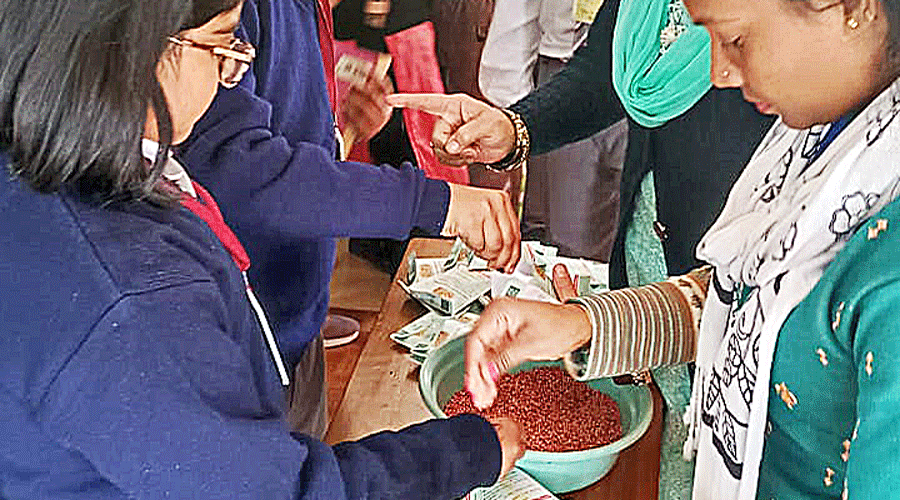Students of at least five city schools have been busy packing coriander seeds on their campuses that they will distribute in their buildings and neighbourhoods this week.
Students of classes IV and V have been entrusted with the responsibility of putting the seeds into paper envelopes.
An organisation called Vinisha, which works for the environment and involves schoolchildren to make a difference, has pledged to distribute one lakh seed packets on January 12, Youth Day.
When Vinisha approached schools for the initiative, teachers raised doubts about whether the seeds would reach their ultimate destination and whether it would help to pot small plants when the environment needs more intensive intervention.
“If we have trust in our children, they will live up to it. When the children see the seeds sprout they will take ownership and feel proud of what they have been able to do,” said Ramesh Chandran, who started Vinisha.
Birla High School for Boys, Birla High School Mukundapur, Bhavan’s Gangabux Kanoria Vidyamandir, National High School are some of the schools where children are engaged in packing.
At Bhavan’s Gangabux Kanoria Vidyamandir, students of classes IV and V have already packed 8,000 envelopes.
“Children study in their books how the environment needs to be protected and a hands-on activity only teaches them better,” said Suparna Chatterjee, headmistress at Bhavan’s Gangabux Kanoria Vidyamandir.
The packets will be given to students of Classes III, IV and V who will distribute them this week.
The activity has generated not only interest but also curiosity among children, said teachers. “Some of them asked their teachers why coriander seeds. They were told it is because they yield results much faster. We are using the activity for interdisciplinary studies because they are learning how many spoons of seeds to be put in the packets and writing out sentences on what they did,” said Hira Prasad, principal, Birla High School Mukundapur.
The paper envelopes that the children have been given for making packets carry messages like avoid plastics, use cloth bags, segregate waste.
“Some of these messages are repetitive but reinforcement is needed to make people follow them,” said Chandran.
